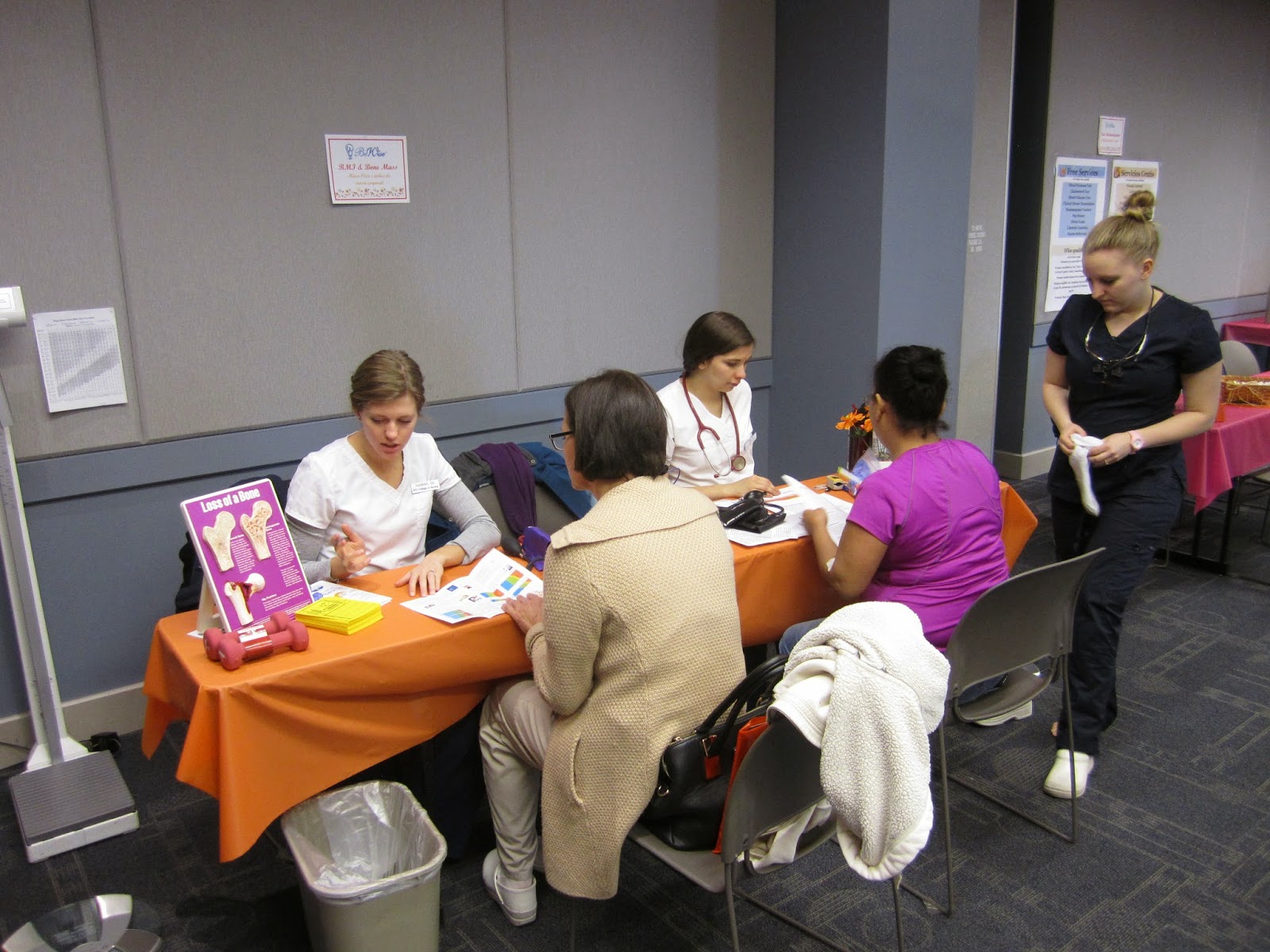
Today we had our mental health class. Dr. Lynda Silva from the Intermountain Employee Assistance Program was our speaker. She had some great insights and tips into improving our wellbeing. Here are some of the highlights from the class.
First, she talked about what wellbeing is. In a nutshell, wellbeing is happiness, or our overall level of satisfaction in life. She told us about a huge study that was done to better understand wellbeing across the world. The study concluded that there are five essential elements to wellbeing.
1) Career Wellbeing: Do you like what you do every day?


4) Physical Wellbeing: Do you have good health and enough energy to get things done every day?

5) Community Wellbeing: Are you engaged with the area where you live?
Chances are that you're doing better in some areas than others, and that's completely normal. Most of us can say that we are doing really well in one area, but only a small percentage are satisfied in all 5. While it's easy to focus on the things we have no control over, it's important to remember that there are things we can do to improve our wellbeing in each of these categories.
Here are some of the suggestions we talked about to help improve happiness in the 5 areas.
Career
- Try to be friends with your fellow employees. The wellbeing study determined that having a "best friend" at work can greatly increase happiness while on the job. We spend a lot of time with our co-workers, it's important to try and get along with them!
- Make your work space pleasant by adding a personal touch through color, decorations, photos, etc. in order to help you feel happier and more comfortable with your environment.
- Using our talents is another great way to improve our satisfaction on the job. Try to find ways to use your talents while on the job. For example, someone who has a talent for organizing can help make the whole office happy by making it easier to find things and do their jobs.
Social
- The study determined that we should spend about 6 hours every day socializing. If this seems like a lot, it did to us too! Keep in mind that those hours include smaller interactions throughout the day and don't necessarily have to come in large chunks of time.
- If you work doing something that doesn't allow you to socialize, be sure to take the time on your breaks to talk to a co-worker, or you could call a friend or family member.
Financial
- People who spend money on experiences are generally happier than those who spend money on things. Try saving to take a trip instead of buying something that you have to store and dust!
- Find a budgeting system that works for you. Whether you pay all your bills at the first of the month or at the end, find a way to spend less time worrying about money.
- Spend money on others! It was found that people who buy things for others instead of themselves report greater happiness after spending the same amount of money.
Physical
- Make a shopping list and stick to it! If you don't have cookies in the house, you can't eat them late at night when you feel like snacking.
- Find ways to be active that you enjoy and people to do them with. It's much more fun to exercise with a friend!
Community
- Find ways to get involved that you'll enjoy, and commit yourself ahead of time. If you've already committed to be somewhere to volunteer once a month or once a week, it'll save you from having to make that decision in the moment!
While these are just a few examples, they can help get you started. Each of these elements affects the others in small and big ways, so you may be surprised at how one small change makes an unexpected impact. For example, choosing to follow a budget in order to improve your financial wellbeing may also mean you fight less with your partner/spouse about money, and so your social wellbeing improves as well. Try to choose one or two things that you can do today to help improve your wellbeing, and write them down.
These elements are the currency of a life that matters.
Even small changes can result in better days.
Dr. Lynda Silva used the following books as references during her presentation:
Wellbeing: The Five Essential Elements. Tom Rath & Jim Harter
Now, Discover Your Strengths. Marcus Buckingham & Donald O. Clifton, Ph.D
How Full is Your Bucket. Tom Rath & Donald O. Clifton



















